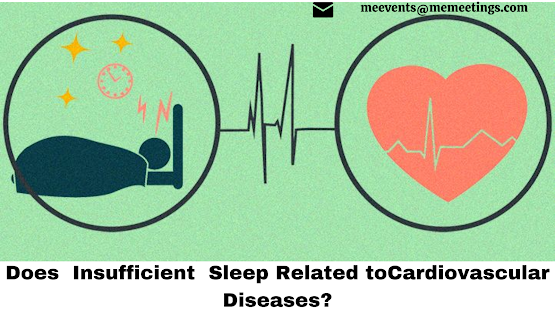Does Insufficient Sleep Related to Cardiovascular Diseases?
How insufficient sleep related to cardiovascular diseases
The majority of individuals are aware of the usual causes of cardiac problems, including smoking, insufficient exercise, and a bad diet. When it comes to preserving a healthy circulatory system, sleep is, however, frequently undervalued.For this reason, medical professionals explain how sleep affects heart health. Your risk of stroke, diabetes, heart attacks, and other heart disorders can rise due to interrupted or insufficient sleep.
Let's analyse the
connection in more detail:
Effects of Sleep on
Blood Pressure
Atleast 7 hours of sleep is essential for every individual. The doctor claims that when we get enough rest, our blood pressure decreases.But when a person doesn't get enough shut-eye at night, their blood pressure stays high.Compared to elevated blood pressure during the day, an elevated blood pressure level at night is more indicative of future heart-related disorders. In more severe situations, Hypertension can lead to other issues like kidney stones and stroke.
Type 2 Diabetes May Be Caused by Fragmented Sleep According to the surgeon, diabetes and cardiovascular health are tightly associated. Your risks of developing prediabetes can rise if you have sleep problems.On the other side, those who already have type 2 diabetes may experience worse symptoms if they don't get enough sleep. A significant risk factor for heart disease and stroke is this chronic illness.
How Can You Sleep More
Soundly?
Now that you are aware of the connection between sleep deprivation and heart illnesses, it is time to discuss some suggestions for improving your sleep. The best cardiologist advises taking the following steps to enhance the quality of your sleep:
•
Keep your bedroom noise-free; • Avoid high-calorie foods, sugar, and
alcohol a few hours before bedtime; • Use anti-glare glasses and a blue
light filter while using a computer or laptop; • Don't exercise before
bedtime but it's important to be active during the day; • • Always take a few
steps after a heavy lunch or dinner; • Let natural light in

.png)

.png)
Comments
Post a Comment